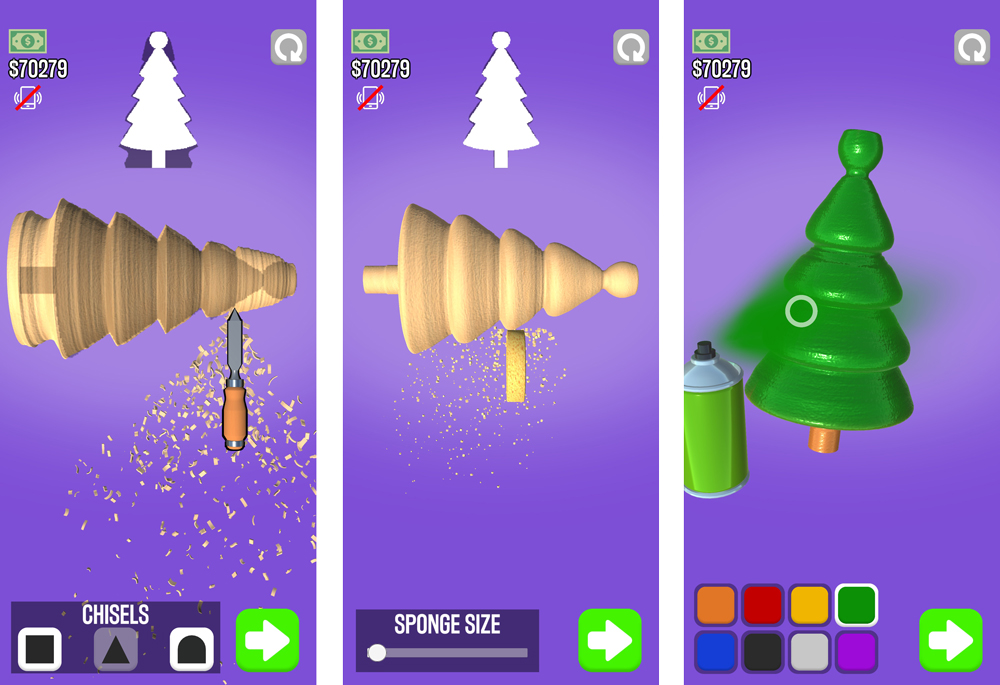Hyper-casual giant Voodoo has won a court case against Istanbul-based publisher Rollic Games, which is owned by Zynga, and developer Hero Games. According to Voodoo’s claims, Hero Games copied key elements of Voodoo’s hit Woodturning.
Woodturning
In January 2020, Hero updated its wood carving game Wood Shop introducing new features that, according to Voodoo, cloned characteristic elements of Woodturning. These included “polishing and painting stage and the use of real-world objects rather than abstract shapes,” as reported by The Financial Times. Following Wood Shop‘s January update, Voodoo filed a takedown notice. After Hero and Rollic refuced to remove the game from the app stores, Voodoo brought the matter of the alleged plagiarism to a Paris court. This month, the legal battle culminated in a ruling in Voodoo’s favor.
Rollic and Hero Games will now have to pay Voodoo €125,000 in economic and reputational damages for “unfair competition and parasitism”. Wood Shop will also be removed from Google Play and App Store, while its developer and publisher will have to post an announcement about the ruling in three newspapers or magazines that Voodoo chooses.
The ruling sets an important precedent for the hyper-casual market plagued by cloning.
“For us [at Voodoo] it’s important to have legal precedent. We want to sanitise the market of these practices,” said Voodoo’s legal counsel Nassim Ameli-Jouffroy. “There is very little precedent in the hyper-casual sphere about where the line is to protect your games.”
As for other measures against clones, Voodoo is investing “heavily into a game that is being copied so that the road-map is quicker and so that the original is always better than its copy.”

